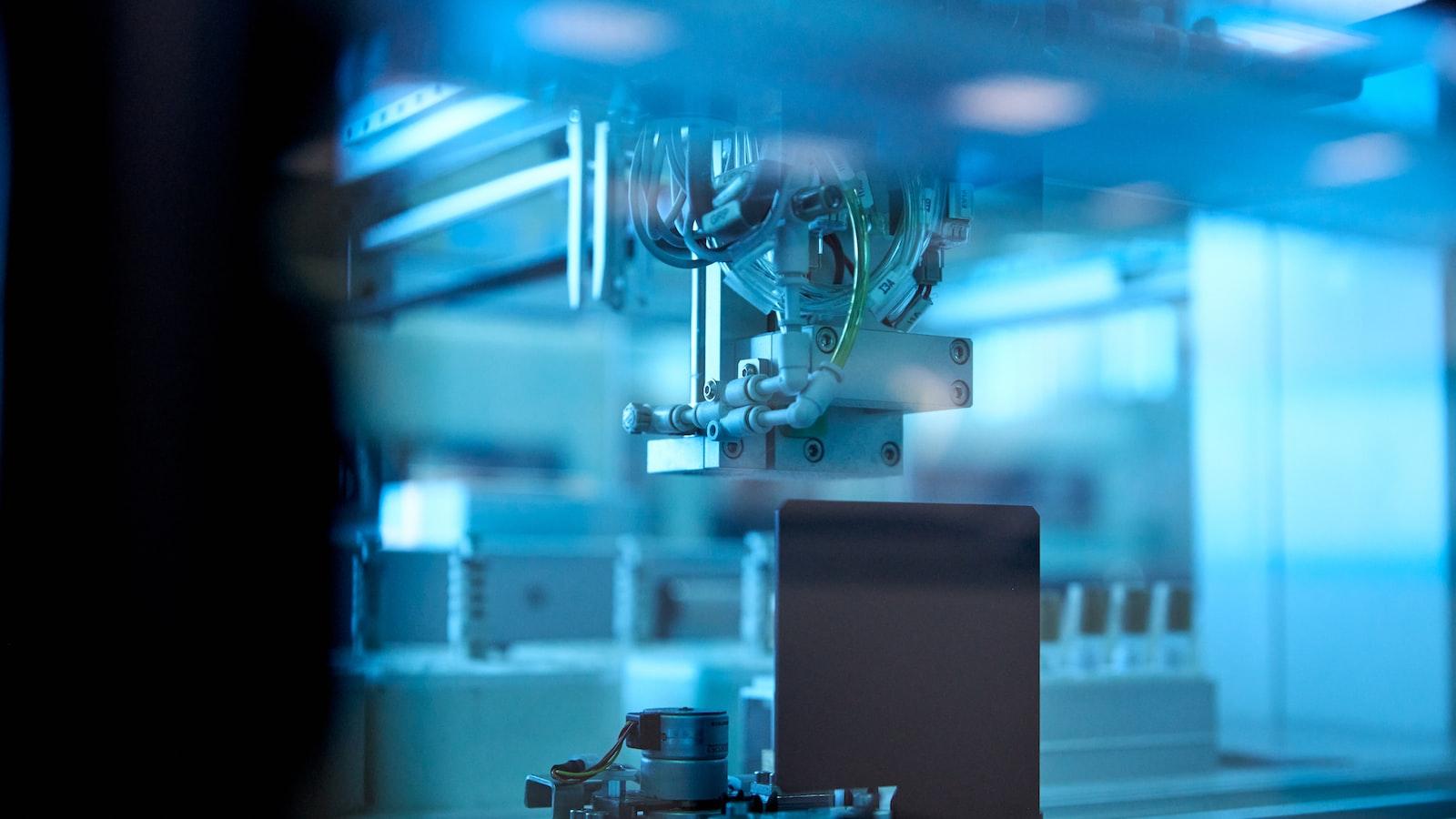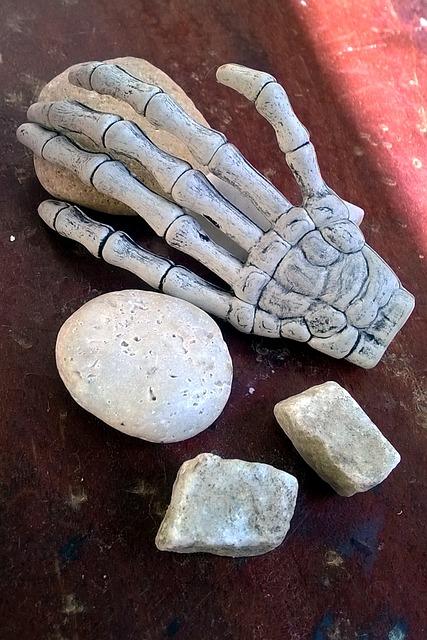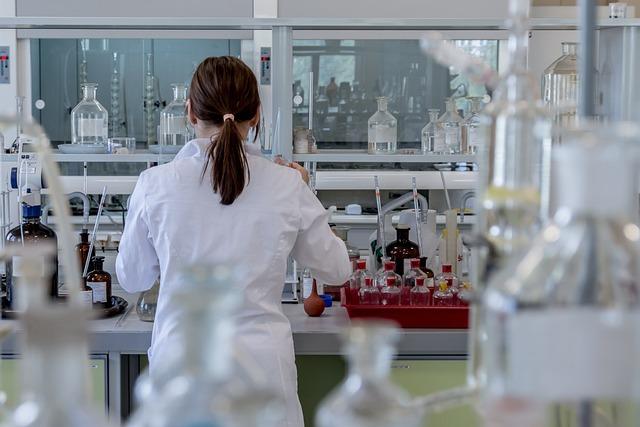Step into the fascinating world of a lab assistant, where science meets innovation and everything in between. Behind the closed doors of laboratories, these unsung heroes play a crucial role in the pursuit of knowledge and breakthrough discoveries. With meticulous precision and a keen eye for detail, lab assistants are the invisible gears that keep the scientific machinery rolling smoothly. From assisting scientists and researchers to conducting tests and experiments, these dedicated individuals breathe life into the realm of scientific exploration. So, come together as we delve into the intriguing realm of lab assistants, where curiosity knows no bounds and possibilities are waiting to be discovered.
The Essential Duties of a Lab Assistant: A Look into a Vital Role in the Scientific Community
Lab assistants play a crucial role in the scientific community, performing a wide range of essential duties that contribute to the smooth operation of a laboratory. These skilled individuals support scientific research and experimentation, ensuring accuracy, efficiency, and safety in the lab environment.
One of the primary responsibilities of a lab assistant is to assist scientists and researchers in conducting experiments and analyzing data. They carefully follow protocols and procedures to prepare and handle samples, specimens, and chemicals. Lab assistants use their technical expertise to set up and calibrate laboratory equipment, such as microscopes, centrifuges, and pipettes. They also monitor and record experimental results, making detailed observations and collecting data for analysis.
In addition to their hands-on work in the lab, lab assistants have important administrative duties. They maintain inventory and order necessary supplies, ensuring that the lab is well-stocked and fully equipped. Lab assistants also handle documentation, meticulously recording procedures, protocols, and results. Their organizational skills and attention to detail are vital in maintaining accurate and up-to-date records that contribute to the integrity of scientific research.
Lab assistants must adhere to strict safety guidelines to protect themselves and others in the lab. They actively participate in maintaining a clean and hazard-free work environment. This includes proper disposal of hazardous materials, sterilization of equipment, and wearing protective clothing, such as gloves, masks, and lab coats. Lab assistants are also responsible for identifying and troubleshooting equipment malfunctions, ensuring the lab operates efficiently and effectively.
The role of a lab assistant is vital to the scientific community, supporting researchers and scientists in their quest for knowledge and advancements. Lab assistants possess a unique skill set that combines technical expertise, attention to detail, and a dedication to safety. Their contribution to the world of science cannot be overstated, as they lay the groundwork for discoveries and progress in various fields of study.
A Comprehensive Overview of the Skills and Qualities Necessary for Excelling as a Lab Assistant
Being a lab assistant requires a unique set of skills and qualities that ensure the smooth operation of a laboratory and contribute to the overall success of scientific research. To excel in this role, lab assistants need to possess a combination of technical expertise, attention to detail, and strong organizational skills.
One of the most crucial skills for a lab assistant is the ability to accurately follow protocols and procedures. This includes understanding and adhering to safety guidelines, maintaining proper laboratory hygiene, and correctly handling and storing equipment and chemicals. Additionally, lab assistants should be proficient in executing experiments, recording data, and analyzing results. An eye for detail is essential in capturing accurate measurements, observations, and other important data points.
To be an effective lab assistant, effective communication skills are vital. This includes not only clearly conveying information and instructions to colleagues and researchers, but also actively listening and being receptive to feedback. The ability to collaborate and work as part of a team is equally important, as lab assistants are often involved in projects with multiple other scientists and technicians. Flexibility and adaptability are also key attributes, as experiments and research often require adjustments and modifications along the way.
Key Skills and Qualities for Lab Assistants:
- Technical Proficiency: Demonstrating expertise in laboratory techniques and procedures, and possessing a solid understanding of scientific principles.
- Attention to Detail: Being meticulous and accurate in recording and analyzing data.
- Organization: Maintaining a well-structured work environment, managing inventory, and keeping track of multiple projects and deadlines.
- Communication: Effectively conveying information and collaborating with team members.
- Flexibility: Being adaptable to changes in experimental procedures and research requirements.
- Problem-Solving: Identifying and troubleshooting issues that may arise during experiments and finding practical solutions.
Summary:
A lab assistant plays a crucial role in supporting scientific research and ensuring the smooth operation of a laboratory. By possessing a combination of technical skills, attention to detail, organizational abilities, and effective communication, lab assistants contribute to the overall success of experiments and projects. Their proficiency in executing protocols, accuracy in recording and analyzing data, and ability to collaborate with colleagues make them valuable assets to any scientific team. Whether it’s handling equipment, following safety guidelines, or troubleshooting issues, lab assistants are versatile professionals who excel in a variety of lab environments.

Efficient Laboratory Management: Key Tips for Lab Assistants to Streamline Operations and Ensure Accuracy
Efficient management is crucial for optimizing the workflow and ensuring accurate results in a laboratory setting. Lab assistants play a vital role in streamlining operations and maintaining a high level of efficiency. By following key tips and implementing effective strategies, lab assistants can contribute to the smooth functioning of the laboratory and enhance overall productivity.
One essential tip for lab assistants to streamline operations is to prioritize organization. By keeping the workspace clean and well-maintained, lab assistants can eliminate potential distractions and reduce the risk of errors. Utilizing labeling systems for equipment, samples, and storage can also contribute to efficient organization. Additionally, developing a system for tracking and documenting tasks, such as using digital tools or creating checklists, can help lab assistants stay on top of their responsibilities and ensure nothing falls through the cracks.
Furthermore, effective communication within the laboratory is crucial for efficient operations. Lab assistants should regularly communicate with their colleagues, supervisors, and other team members to effectively coordinate and prioritize tasks. Maintaining open lines of communication and promptly addressing any concerns or issues can prevent delays and minimize misunderstandings. Additionally, utilizing digital communication tools or software systems specifically designed for laboratory management can further enhance collaboration and facilitate information sharing in a streamlined manner.

Promoting Safety and Adherence to Protocols: Best Practices for Lab Assistants to Prevent Hazards and Maintain an Optimal Working Environment
Lab assistants play a crucial role in promoting safety and maintaining an optimal working environment in the laboratory. By adhering to protocols and following best practices, they can prevent hazards and ensure the smooth operation of scientific experiments and research. Here are some essential tips and guidelines for lab assistants to excel in their duties:
1. **Understanding and following safety protocols**: Lab assistants should familiarize themselves with the safety protocols specific to their laboratory. This includes wearing appropriate personal protective equipment (PPE) such as goggles, gloves, and lab coats. They should also be aware of emergency procedures and have knowledge of hazardous materials and their proper handling.
2. **Maintaining a clean and organized workspace**: Lab cleanliness is essential to prevent accidents and cross-contamination. Lab assistants should regularly clean and sterilize equipment, benches, and other surfaces. Chemicals should be properly labeled and stored in designated areas, and waste should be disposed of correctly. By keeping their workspace organized, lab assistants can minimize the chances of accidents and optimize their efficiency.
Additionally, lab assistants should be vigilant in identifying potential safety hazards and promptly report them to their supervisors. By actively participating in laboratory safety programs and undergoing regular safety training, lab assistants not only protect themselves but also contribute to creating a secure and productive work environment. Remember, safety should always be the utmost priority in any laboratory setting.
Insights and Conclusions
In the magical world of science, where experiments flourish and discoveries are made, there exists a humble but indispensable role – that of a lab assistant. As our journey through the inner workings of laboratories comes to a close, it is time to bid farewell to the unsung heroes who seamlessly blend into the background, quietly aiding scientists in their pursuit of knowledge.
With nimble fingers and keen eyes, the lab assistant becomes an extension of the scientist’s mind, meticulously ensuring that each step is executed flawlessly. Like a symphony conductor, they skillfully orchestrate the chaos of chemicals and equipment, transforming a perplexing puzzle into a tangible reality. Their expertise lies not only in manipulating delicate instruments but also in deciphering the mysterious language of science, acting as a bridge between theory and practice.
A lab assistant is a chameleon of knowledge, adapting to the varied needs of different disciplines. From biology to chemistry, physics to geology, their remarkable versatility allows them to navigate the intricate web of scientific domains, forever cultivating an insatiable thirst for understanding. They are the unsung curators of the laboratory, ensuring that everything is in its rightful place, never ceasing to amaze with their unwavering attention to detail.
Yet, it is not only their technical prowess that sets them apart but also their unwavering commitment to safety. The lab assistant stands as a sentinel, protecting all those within the sacred walls of experimentation from the veiled dangers that lie in wait. They are the guardians of caution, reminding us that in the pursuit of knowledge, safeguarding lives should never be compromised. Their dedication is unwavering, for they understand that every triumph of science is built upon a solid foundation of caution and responsibility.
As we bid farewell to the lab assistant, let us not forget their vital contribution to the scientific world. Hidden in the shadows, they have played an essential role, ensuring that the wheels of progress continue to turn. The world of science owes a debt of gratitude to these unsung heroes, and may their passion and commitment continue to inspire others to venture into the captivating realm of discovery.
So let us raise our metaphorical beakers, filled not with substances but with admiration, as we honor the lab assistant – a true harbinger of scientific wonders.

